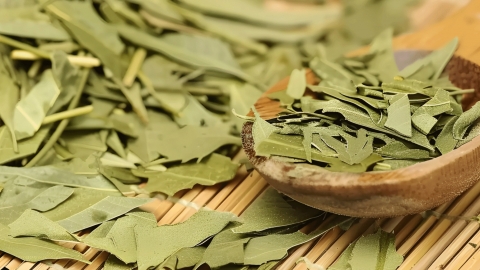Can senna leaves be steeped in water and consumed regularly over a long period?
Senna leaf is generally not suitable for long-term consumption as a steeped tea. It is recommended to use this herb under the guidance of a physician. If discomfort occurs, prompt medical attention is advised.

Senna leaf is a traditional Chinese medicine known for its laxative and bowel-regulating effects. It has a cold nature and a sweet, bitter taste, affecting the large intestine meridian. It can stimulate intestinal motility, increase intestinal pressure and secretion of moisture, thus facilitating defecation. Clinically, it is commonly used to treat conditions such as heat-induced constipation and abdominal distension caused by food retention. However, it is generally not recommended for long-term use as a steeped tea. Prolonged use of senna leaf tea may damage the body's yang energy, especially that of the spleen and stomach, and may lead to intestinal dependence and dysfunction.
For individuals without constipation issues, or those with weak spleen and stomach function or diarrhea, long-term consumption of senna leaf tea may cause discomfort such as diarrhea and abdominal pain, and could potentially lead to electrolyte imbalance and intestinal dysfunction. Additionally, prolonged and excessive use of senna leaf may result in dependency, causing the intestines to lose their natural ability to evacuate stool independently.
To avoid unnecessary harm to the body, it is recommended to use senna leaf under the guidance of a qualified physician, strictly controlling the dosage and duration of use. At the same time, healthier and more natural methods to improve intestinal health, such as adjusting diet and increasing physical activity, should be considered.





